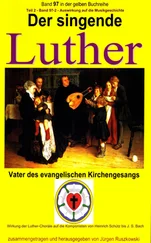Martin Luther - Commentary on Genesis (Complete Edition)
Здесь есть возможность читать онлайн «Martin Luther - Commentary on Genesis (Complete Edition)» — ознакомительный отрывок электронной книги совершенно бесплатно, а после прочтения отрывка купить полную версию. В некоторых случаях можно слушать аудио, скачать через торрент в формате fb2 и присутствует краткое содержание. Жанр: unrecognised, на английском языке. Описание произведения, (предисловие) а так же отзывы посетителей доступны на портале библиотеки ЛибКат.
- Название:Commentary on Genesis (Complete Edition)
- Автор:
- Жанр:
- Год:неизвестен
- ISBN:нет данных
- Рейтинг книги:4 / 5. Голосов: 1
-
Избранное:Добавить в избранное
- Отзывы:
-
Ваша оценка:
- 80
- 1
- 2
- 3
- 4
- 5
Commentary on Genesis (Complete Edition): краткое содержание, описание и аннотация
Предлагаем к чтению аннотацию, описание, краткое содержание или предисловие (зависит от того, что написал сам автор книги «Commentary on Genesis (Complete Edition)»). Если вы не нашли необходимую информацию о книге — напишите в комментариях, мы постараемся отыскать её.
Commentary on Genesis is the last work of Martin Luther, written during the last several years of his life. Luther's work follows the first volume of Psalms with critical and devotional remarks on the creation and on sin and the flood.
Commentary on Genesis (Complete Edition) — читать онлайн ознакомительный отрывок
Ниже представлен текст книги, разбитый по страницам. Система сохранения места последней прочитанной страницы, позволяет с удобством читать онлайн бесплатно книгу «Commentary on Genesis (Complete Edition)», без необходимости каждый раз заново искать на чём Вы остановились. Поставьте закладку, и сможете в любой момент перейти на страницу, на которой закончили чтение.
Интервал:
Закладка:
It is noteworthy that Luther closes his "Address to the Mayors and Aldermen of all the Cities of Germany in behalf of Christian Schools," which is considered by educators for its pioneer character and statements of principles "the most important educational treatise ever written," by a powerful appeal in behalf of public libraries which I give in full from Luther on Education by Prof. Painter.
Luther concludes that great educational treatise thus:
"Finally, this must be taken into consideration by all who earnestly desire to see such schools established and the study of the languages preserved in the German states; that no cost nor pains should be spared to procure good libraries in suitable buildings, especially in the large cities that are able to afford it. For if a knowledge of the Gospel and of every kind of learning is to be preserved, it must be embodied in books, as the prophets and apostles did, as I have already shown. This should be done, not only that our spiritual and civil leaders may have something to read and study, but also that good books may not be lost, and that the arts and languages may be preserved, with which God has graciously favored us. St. Paul was diligent in this matter, since he lays the injunction upon Timothy, 'Give heed to reading,' I Tim. 4:13, and directs him to bring the books, but especially the parchments left at Troas, 2 Tim. 4:13.
"All the kingdoms that have been distinguished in the world have bestowed care upon this matter, and particularly the Israelites, among whom Moses was the first to begin the work, who commanded them to preserve the book of the law in the ark of God, and put it under the care of Levites, that any one might procure copies from them. He even commanded the king to make a copy of this book in the hands of the Levites. Among other duties, God directed the Levitical priesthood to preserve and attend to the books. Afterwards Joshua increased and improved this library, as did subsequently Samuel, David, Solomon, Isaiah, and many kings and prophets. Hence have come to us the Holy Scriptures of the Old Testament, which would not otherwise have been collected and preserved, if God had not required such diligence in regard to it.
"After this example collegiate churches and convents formerly founded libraries, although with few good books. And the injury from the neglect to procure books and good libraries, when there were men and books enough for that purpose, was afterwards perceived in the decline of every kind of knowledge; and instead of good books, the senseless, useless, and hurtful books of the monks, the Catholicon, Florista, Graecista, Labyrinthus, Dormi Secure (names of Latin grammars and collections of sermons), and the like, were introduced by Satan, so that the Latin language was corrupted, and neither good schools, good instruction, nor good methods of study remained. And as we see, the language and arts are, in an imperfect manner, recovered from fragments of old books rescued from the worms and dust; and every day men are seeking these literary remains, as people dig in the ashes of a ruined city after treasures and jewels.
"Therein we have received our just due, and God has well recompensed our ingratitude, in that we did not consider his benefits, and lay up a supply of good literature when we had time and opportunity, but neglected it, as if we were not concerned. He in turn, instead of the Holy Scriptures and good books, suffered Aristotle and numberless pernicious books to come into use, which only lead us further from the Bible. To these were added the progeny of Satan, the monks and the phantoms of the universities, which we founded at incredible cost, and many doctors, preachers, teachers, priests and monks, that is to say, great, coarse, fat fellows, adorned with red and brown caps, like swine led with a golden chain and decorated with pearls; and we have burdened ourselves with them, who have taught us nothing useful, but have made us more and more blind and stupid, and as a reward have consumed all our property, and filled all the cloisters, and indeed every corner with dregs and filth of their unclean and noxious books, of which we cannot think without horror.
"Has it not been a grievous misfortune that a boy has hitherto been obliged to study twenty years or longer, in order to learn enough miserable Latin to become a priest and to read the mass? And whosoever has succeeded in this has been called blessed, and blessed the mother that has borne such a child! And yet he has remained a poor ignorant man all through life, and has been of no real service whatever. Everywhere we have had such teachers and masters, who have known nothing themselves, who have been able to teach nothing useful, and who have been ignorant even of the right methods of learning and teaching. How has it come about? No books have been accessible but the senseless trash of the monks and sophists. How could the pupils and teacher differ from the books they studied? A crow does not hatch a dove, nor a fool make a man wise. That is the recompense of our ingratitude, in that we did not use diligence in the formation of libraries, but allowed good books to perish, and bad ones to survive.
"But my advice is not to collect all sorts of books indiscriminately thinking only of getting a vast number together. I would have discrimination used, because it is not necessary to collect the commentaries of the jurists, the productions of all the theologians, the discussions of all the philosophers, and the sermons of all the monks. Such trash I would reject altogether, and provide my library only with useful books; and in making the selection I would advise with learned men.
"In the first place, a library should contain the Holy Scriptures in Latin, Greek, Hebrew, German and other languages. Then the best and most ancient commentators in Greek, Hebrew and Latin.
"Secondly, such books as are useful in acquiring the languages, as the poets and orators, without considering whether they are heathen or Christian, Greek or Latin. For it is from such works that grammar must be learned.
"Thirdly, books treating of all the arts and sciences.
"Lastly, books on jurisprudence and medicine, though here discrimination is necessary.
"A prominent place should be given to chronicles and histories, in whatever language they may be obtained; for they are wonderfully useful in understanding and regulating the course of the world, and in disclosing the marvelous works of God. O, how many noble deeds and wise maxims produced on German soil have been forgotten and lost, because no one at the time wrote them down; or if they were written, no one preserved the books; hence we Germans are unknown in other lands, and are called brutes that know only how to fight, eat and drink. But the Greeks and Romans, and even the Hebrews have recorded their history with such particularity, that even if a woman or child did anything noteworthy, all the world was obliged to read and know it; but we Germans are always Germans and will remain Germans.
"Since God has so graciously and abundantly provided us with art, scholars and books, it is time for us to reap the harvest and gather for future use the treasures of these golden years. For it is to be feared (and even now it is beginning to take place) that new and different books will be produced, until at last, through the agency of the devil, the good books which are being printed will be crowded out by the multitude of ill-considered, senseless and noxious works. For Satan certainly designs that we should torture ourselves again with Catholicons, Florists, Modernists and other trash of the accursed monks and sophists, always learning, yet never acquiring knowledge.
"Therefore, my dear sirs, I beg you to let my labor bear fruit with you. And though there be some who think me too insignificant to follow my advice, or who look down upon me as one condemned by tyrants; still let them consider that I am not seeking my own interest, but that of all Germany. And even if I were a fool, and yet should hit upon something good, no wise man should think it a disgrace to follow me. And if I were a Turk and heathen, and it should yet appear that my advice was advantageous, not for myself, but for Christianity, no reasonable person would despise my counsel. Sometimes a fool has given better advice than a whole company of wise men. Moses received instruction from Jethro.
Читать дальшеИнтервал:
Закладка:
Похожие книги на «Commentary on Genesis (Complete Edition)»
Представляем Вашему вниманию похожие книги на «Commentary on Genesis (Complete Edition)» списком для выбора. Мы отобрали схожую по названию и смыслу литературу в надежде предоставить читателям больше вариантов отыскать новые, интересные, ещё непрочитанные произведения.
Обсуждение, отзывы о книге «Commentary on Genesis (Complete Edition)» и просто собственные мнения читателей. Оставьте ваши комментарии, напишите, что Вы думаете о произведении, его смысле или главных героях. Укажите что конкретно понравилось, а что нет, и почему Вы так считаете.












